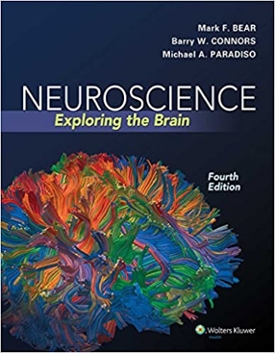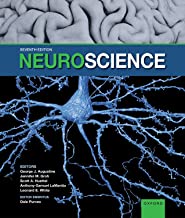Winter 2025 Class Schedule
For scheduled times of courses in other departments, go to CAESAR.
ATTENTION!
Enrollment in NEUROSCI 202-0 is limited to declared neuroscience majors only!
During preregistration and the first week of regular registration, NEUROSCI 206-0 is limited to neuroscience majors only!
To declare a Neuroscience Major, please request an appointment through neuroscience@u.northwestern.edu. Please be sure to list your availability, preference of meeting with Dr. Justin Brown or Dr. Valerie Kilman and preference of in-person or zoom meeting!
| Course | Title | Instructor | Lecture | Discussion |
|---|---|---|---|---|
| NEUROSCI 202-0-22 | Cellular and Molecular Neuroscience | Wang | MWF 1:00 pm - 1:50 pm | |
| NEUROSCI 206-0-20 | Systems and Behavioral Neuroscience | Miri | MWF 10:00 am - 10:50 am | |
| NEUROSCI 325-0-20 | Neurobiology of Stress, Adversity, and Resilience | Woolley | TTH 11:00 am - 12:20 pm | |
| NEUROSCI 350-0-60 | Advanced Neurophysiology Laboratory | Dombeck | Thursdays noon until 4:50 pm | |
| NEUROSCI 360-0-20 | Neuroscience of Brain Disorders | Kilman | MWF 11:00 am- 11:50 am | |
| NEUROSCI 370-0-20 | Genetic and Circuit Analysis of Motivated Behavior | Lee | MWF 11:00 am - 11:50 am | |
| NEUROSCI 398-0 | Senior Thesis Seminar | Kilman | TBD | |
| NEUROSCI 399-0 | Independent Study | Kilman | As arranged |
What happens if a class fills up during preregistration?
Preregistration allows majors to add up to 2.34 units before anyone else may register for Neuroscience related courses - lists of classes allowing preregistration. Preregistration is the ideal time for students to enroll in Group A or Group B requirements at a time when courses are only available to Neuroscience Majors. If you were unable to register for 2.34 units because the class you wanted was filled, you will be able to place your name on the waitlist during regular registration. Do not contact the instructor for a permission number. Having your name on the waitlist does not guarantee you a spot in the class. It offers the opportunity to take the class if a registered student drops the class which you were interested in.
What happens if a class fills up during registration?
- Place your name on the waitlist.
- Wait to be contacted by the program assistant to see if you are able to register for the class.
- Once contacted, you must either remove your name and register for the class or remove your name from the waitlist as specified in the email sent by the program assistant.
 NEUROSCI 202-0-20 Cellular and Molecular Neuroscience will be taught by Wei Chun Wang, PhD. Introduction to principles governing nervous system function at the cellular and molecular level. Final exam will be held during finals week but will be online. May not receive credit for both NEUROSCI 202-0 and BIOL_SCI 302-0. See Caesar for full description.
NEUROSCI 202-0-20 Cellular and Molecular Neuroscience will be taught by Wei Chun Wang, PhD. Introduction to principles governing nervous system function at the cellular and molecular level. Final exam will be held during finals week but will be online. May not receive credit for both NEUROSCI 202-0 and BIOL_SCI 302-0. See Caesar for full description.
Prerequisites: Must be a neuroscience major and have completed BIOL_SCI 201-0.
Natural Sciences Distro Area
 NEUROSCI 206-0-20 Systems and Behavioral Neuroscience will be taught by Andrew Miri, Phd. This course explores current understanding of the organization and function of neural systems (visual, auditory, motor, etc.) within the mammalian nervous system. Topics include basic neuroanatomy, sensory processing, motor control, and higher cognitive functions including memory and language. Time will be devoted to presentation of essential knowledge form each area as well as to a discussion of key experiments that have contributed to our understanding. Course reading will be supplemented by primary research articles. May not receive credit for both this course and the former NEUROSCI 306-0/BIOL_SCI 306-0. See Caesar for full description.
NEUROSCI 206-0-20 Systems and Behavioral Neuroscience will be taught by Andrew Miri, Phd. This course explores current understanding of the organization and function of neural systems (visual, auditory, motor, etc.) within the mammalian nervous system. Topics include basic neuroanatomy, sensory processing, motor control, and higher cognitive functions including memory and language. Time will be devoted to presentation of essential knowledge form each area as well as to a discussion of key experiments that have contributed to our understanding. Course reading will be supplemented by primary research articles. May not receive credit for both this course and the former NEUROSCI 306-0/BIOL_SCI 306-0. See Caesar for full description.
Prerequisite: Student must have completed NEUROSCI 202-0 or NEUROSCI 311-0 or BIOL_SCI 302-0. Registration for this class is limited to Neuroscience Majors only until November 18th, 2024.
Natural Sciences Distro Area
Prerequisites: NEUROSCI 202-0 and NEUROSCI 206-0; or NEUROSCI 311-0 and NEUROSCI 206-0; or BIOL_SCI 302-0 .
NEUROSCI 325-0-20 and NEUROSCI 390-0-22 may be used as a Neuroscience Group B elective or may be used as an Allied Field in Biology. You may receive not credit for both NEUROSCI 325-0-20 and NEUROSCI 390-0-22.
NEUROSCI 350-0-60 Advanced Neurophysiology Laboratory will be taught by Daniel Dombeck, Phd. In this laboratory course you will perform electrophysiological experiments in which signals from living neurons (action potentials, local field potentials, post synaptic potentials) are recorded using amplifiers and data logging equipment commonly found in advances research labs around the world. No textbook required. Please email Dr. Dombeck to request a permission number for this class listing registration time slots.
Prerequisites: Student must have completed NEUROSCI 202-0 and NEUROSCI 206-0; or NEUROSCI 311-0 and NEUROSCI 206-0; or BIOL_SCI 302-0; and have consent of instructor.
NEUROSCI 360-0-20 Neuroscience of Brain Disorders will be taught by Valerie Kilman, PhD. Survey of brain disorders such as neurodegenerative diseases, developmental disorders, narcolepsy, and migraine. Trace progress from the laboratory to the clinic, evaluate the state of knowledge and understand future directions. Lectures will be held on Mondays and Wednesdays. Discussions will be held on Friday.
Prerequisites: NEUROSCI 202-0 and NEUROSCI 206-0; NEUROSCI 311-0 and NEUROSCI 206-0; or BIOL_SCI 302-0. Recommend review of basic genetics and molecular biology.
NEUROSCI 370-0-20 Genetic and Circuit Analysis of Motivated Behavior
Prerequisites: Student must have completed
NEUROSCI 370-0-20 and NEUROSCI 390-0-23 may be used as a Neuroscience Group B elective or may be used as an Allied Field in Biology. You may not receive credit for both NEUROSCI 370-0-20 and NEUROSCI 390-0-23.
